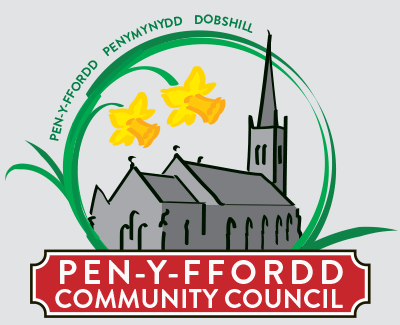Black Lives Matter here too
We are fortunate to live in peaceful part of the World, seemingly far removed from the horrors of racial prejudice. But the lessons from across the globe are as relevant to us as they are everywhere else.
There are thirteen members of Penyffordd Community Council covering from ages 18 to 90+. We have business people, trade union people, teachers, carers, politicians, students, engineers - some working and some retired - it feels like a good diversity when we debate. 8 are male, 5 are female. We are all white.
We cannot claim to truly understand about racism and equality. It is not our place to preach or impose our opinions at this time, but we are listening and learning.
There are plenty of lessons of tolerance, of equality, of respect and inclusion.
A very brief glance at our local history reveals links with colonialism and slavery.
This whole area has large country houses, some linked with the Liverpool slave trade. Much of the land from Hope to Penyffordd was owned by Lord Derby who is associated, in a positive way, with the 1833 Abolition of Slavery Act. Sir William Gladstone has been named on websites as a target with links to slavery. He married into the Glynne family, who owned Hawarden Castle and who paid for St John the Baptist Church and school. Gladstone was very active at the time of the same 1833 act to seek compensation for his own father, who owned over 1,500 slaves in the Caribbean.
On the other hand, Gladstone himself was the first Liberal Prime Minister and brought about much social change. Do you judge the man on the legacy of his life’s work or for his hand in campaigning for slave ownership compensation for his family? Large numbers of wealthy British landowners and professionals benefited from the compensation scheme, but that does not change the sense of injustice felt by many in the BAME community who believe that reparations should be paid now.
Today, the Gladstone dependents make active contributions to the local area and community. It is up to the family how they want to address the criticism made of their ancestor. No one should take any action outside the law.
Whatever our view of colonialism and the horrific slave trade and ownership as we view it now, it seems like the most useful thing we can do today is to know the facts, form our own opinions of history and, above all, learn from it.
Racism and inequality is a feature of life in the UK today. Modern slavery remains a problem and there are unknown thousands of people suffering in Britain today, working without freedom or reward.
Our children need to know that racial equality matters to them as it matters everywhere. The lessons on our own doorstep and reading about what is happening far away, together provide an ideal way to open the discussion and stimulate learning. By doing this we can all better understand what we can do now to affect change.
As a community council, our first action will be to review all our Standing Orders - the rules the we operate within - to ensure that they are as inclusive as they can be. Change starts at home and we are committed to do more.
